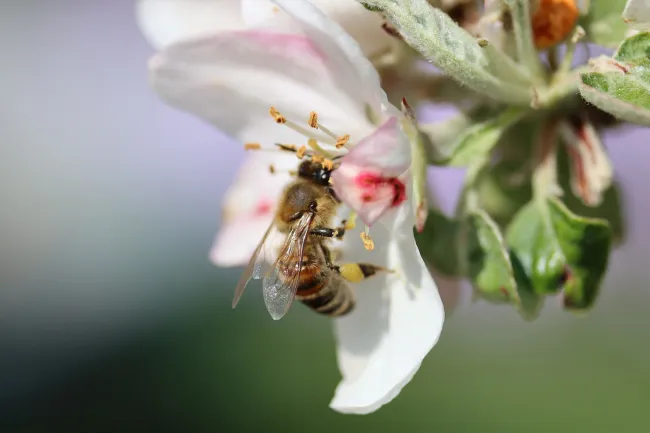Developed economies such as the UK, Germany and Japan could suffer the greatest economic losses from sudden declines in pollinator populations, due to their dependence on imported crops, according to this modelling study. The paper estimates the changes in production levels and market prices that would occur for 74 animal-pollinated crops following sudden pollinator loss due to three causes: high use of pesticides; natural disasters such as drought; or countries being unable to pursue sustainable agricultural policies due to high levels of debt.

In the case of pollinator loss in heavily indebted poor countries, the majority of economic losses occur in Germany, The Netherlands, Japan, China, the United States, Malaysia, France and the United Kingdom, because of the extent to which they import animal-pollinated crops. Whether or not countries directly affected by pollinator loss will suffer economically depends on the extent to which demand changes or does not change in response to higher crop prices. For example, in some scenarios, Cote d’Ivoire actually gains more than 2% in its GDP because the price of cocoa rises strongly enough to outweigh the reduction in yield.
In the case of pollinator loss due to natural disasters, again, most of the economic losses are concentrated in high- and upper middle-income countries that do not directly experience pollinator loss. The directly affected countries experiencing the highest economic losses as a percentage of GDP are Fiji, Togo, Jamaica and the Philippines. In the case of pesticide-induced pollinator loss, China accounts for the majority of economic losses.
The authors recommend:
- Investing in pollinator conservation worldwide.
- Generating more data on pollination and crop markets.
- Further research into the risks and benefits associated with pollinated crops.
Abstract
- Trade in animal-pollinated crops plays an important role in global food systems: in many low-income countries, export of pollinated crops such as coffee and cocoa plays a significant role in livelihoods, while food systems in many higher income nations depend on international trade in these crops to satisfy their local demands. Losses of pollination services therefore pose a significant risk to economies beyond the area directly affected.
- Using a simple extension of a common economic model, we explore which countries are most affected by a loss of pollination services in three case study groups of 25 countries that are vulnerable to different risks: pesticide use, natural disasters and economic debts.
- In all three cases, large, developed economies such as the United Kingdom, Germany and Japan, are estimated to suffer the greatest economic losses, even if pollinator losses only affect smaller, less-developed economies.
- In cases where higher income countries are affected by pollinator losses, there is a significant shift in the value of global pollinated crop production towards other large, unaffected countries.
- Our findings highlight the need for richer countries to invest in pollinator conservation beyond their own borders to maintain resilient food systems. We provide suggestions for further economic research to better understand and identify system vulnerabilities to pollinator losses.
Reference
Murphy, J.T., Breeze, T.D., Willcox, B., Kavanagh, S. and Stout, J.C., 2022. Globalisation and pollinators: Pollinator declines are an economic threat to global food systems. People and Nature, Early View.
Read the full paper here. See also the TABLE explainer Impacts of climatic and environmental change on food systems.




Comments (0)